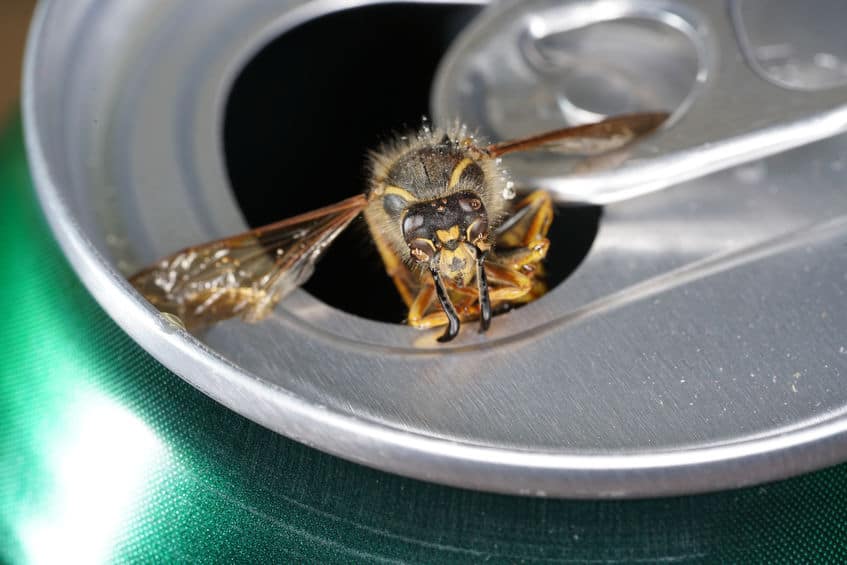When enjoying a beer outside you probably at some point have been rudely interpreted by a wasp wanting a taste of your beer.
Wasps are attracted to beer as they feed on sugar. Just as they are attracted to rotten fruit the fermented sugar does not repel them, but it can intoxicate them. They are more likely to be seeking sources of sugar such as beer in the late fall when food sources become increasingly scarce.
Why do wasps like beer?
Wasps love rotting fruit in nature. You may well have seen wasps crawling on rotten apples in your garden. This rotten fruit actually begins to ferment so wasps are attracted to beer in a similar way they are attracted to rotten fruit. Wasps are primarily attracted to the sugar within the beer and the fruit and they will sense it and be attracted to it. For this reason, cider will also attract wasps.
Fermentation is the process that converts sugar into alcohol, so the sugar is what the wasps are after, not the beer or alcohol itself. Fruit juices such as orange juice can attract wasps more than beer and stronger alcoholic drinks with less sugar will not be attractive to wasps.

Can beer intoxicate wasps?
Wasps are intoxicated when they consume beer which is one reason beer is often used as a wasp trap. Wasps attracted by the beer will enter a can or bottle, become intoxicated, and then be unable to get out again. A common way to make a wasp trap is to cut the top off a bottle and then invert it.
It has been observed that wasps can become more aggressive after consuming beer, so be careful of wasps buzzing around you in beer gardens. This is more likely towards the end of a wasps life in the autumn when deprived of easy food sources they go on the hunt for sugar.
Why are wasps more likely to be attracted to beer in the fall?
wasps feed on sugar, but for most of the season from spring through summer the wasps are primarily tasked with protecting and feeding the wasp larvae within their nests. The larvae need protein to develop and so wasps are busy preying on other insects to feed these very hungry larvae.
Fascinatingly this work is rewarded as the larvae actually secrete a sugary substance, which is what the wasps actually predominantly survive on. During this time nectar is also present in flowering plants, which also provides a ready supply of sugar.
It is only when the larvae have fully developed into wasps and no longer provide a sugary food source and flowers are no longer in abundance in the late fall that wasps start to get hungry. As a result, they are driven to rotten fruit in our gardens and of course beer.
The wasps that come after your beer are actually probably towards the end of their short lives. They will have completed their function of feeding and protecting the next generation of wasps and most will die by early winter.
